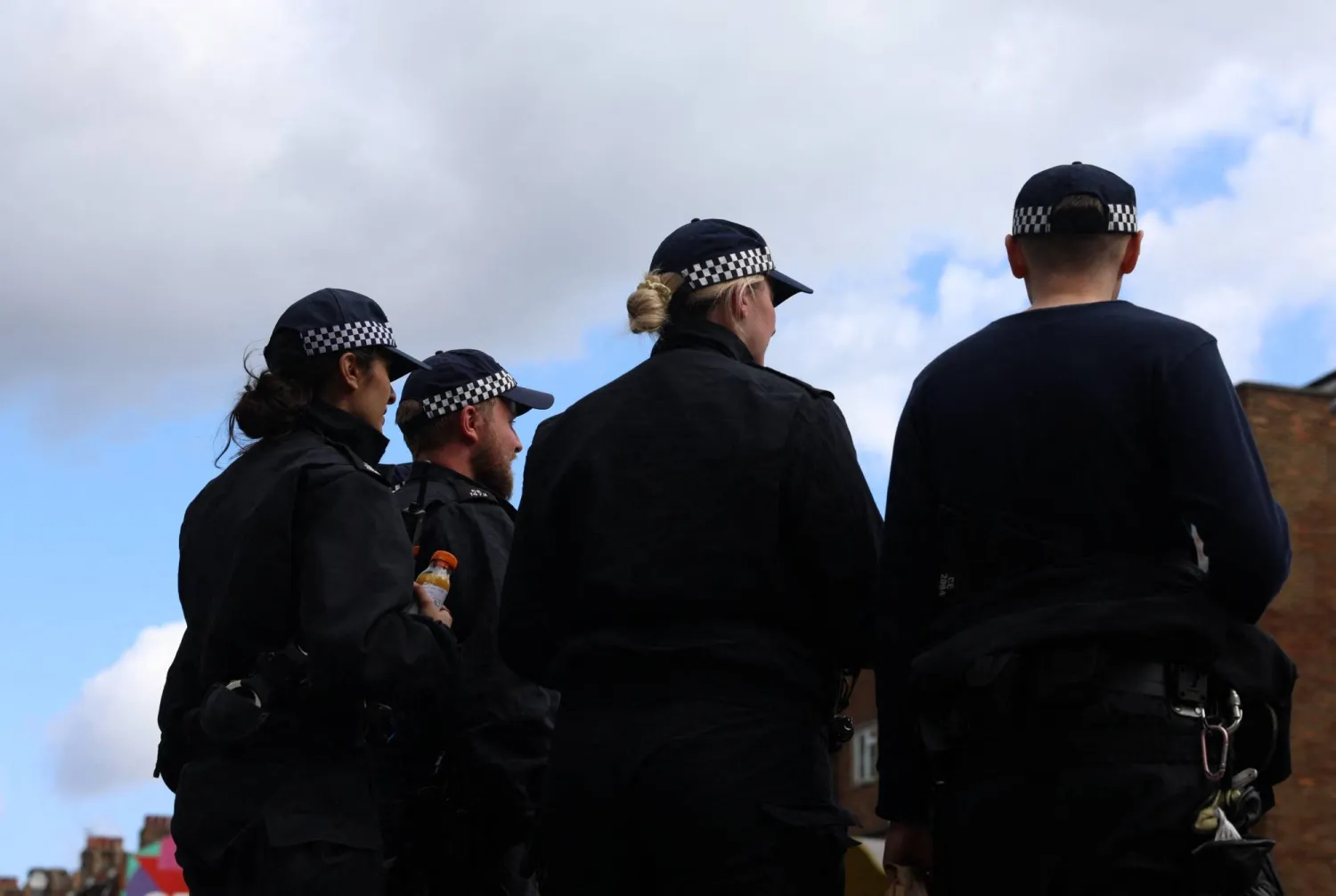A heavy security presence across Britain and a "show of unity" by local communities prevented a repeat of the widespread rioting seen in recent days involving racist attacks targeting Muslims and migrants, London's police chief said on Thursday.
Britain has been hit by a series of riots after the killing of three young girls in a July 29 knife attack in Southport, northwest England, triggering a wave of false online posts that wrongly identified the suspected killer as an “Islamist migrant”, Reuters said.
Far-right groups opposed to immigration planned dozens of gatherings across the UK on Wednesday.
In response, thousands of police and anti-racism protesters gathered in cities across the United Kingdom and London's Metropolitan Police Commissioner Mark Rowley said the night had gone "very peacefully" apart from a few criminal incidents.
"I think the show of force from the police, and frankly, the show of unity from communities, together defeated the challenges that we've seen," Rowley told reporters.
While anti-racism protesters marched carrying banners with slogans like "Refugees Welcome" and "No to Hate", no large far-right gatherings were reported, only smaller groups.
Police said several dozen people had thrown bottles and tried to cause disruption in the southern English town of Croydon, while in Northern Ireland, bins were set on fire in Belfast and authorities said they dealt with a number of race-related hate crime incidents.
Rowley said police had continued to make raids and arrest violent offenders on Thursday morning, including many with criminal backgrounds. Over 400 people in total have been arrested across the country since the start of the riots.
"Any suggestion they're patriots, or they've got a cause... is nonsense," Rowley said. "They're criminals, and frankly, most of them are going to be charged with violent disorder, and most of them are going to go to prison for a few years."
Prime Minister Keir Starmer, a former chief prosecutor who is facing an early crisis after winning a July 4 election, has warned rioters they will face lengthy jail terms.
Policing minister Diana Johnson said on Thursday she remained cautious about the situation.
"There are consequences for the criminality on our streets, and I think that swift justice that we're seeing is also helping to make people think twice about getting involved," Johnson told Sky News.
UK Rioters Thwarted by 'Show of Unity' by Communities, Says Police Chief

Police officers stand guard as protective measures against damage from riots are implemented, in preparation for more unrest amidst anti-immigration related rioting across the country, in London, Britain, August 7, 2024. REUTERS/Mina Kim

UK Rioters Thwarted by 'Show of Unity' by Communities, Says Police Chief

Police officers stand guard as protective measures against damage from riots are implemented, in preparation for more unrest amidst anti-immigration related rioting across the country, in London, Britain, August 7, 2024. REUTERS/Mina Kim
لم تشترك بعد
انشئ حساباً خاصاً بك لتحصل على أخبار مخصصة لك ولتتمتع بخاصية حفظ المقالات وتتلقى نشراتنا البريدية المتنوعة







